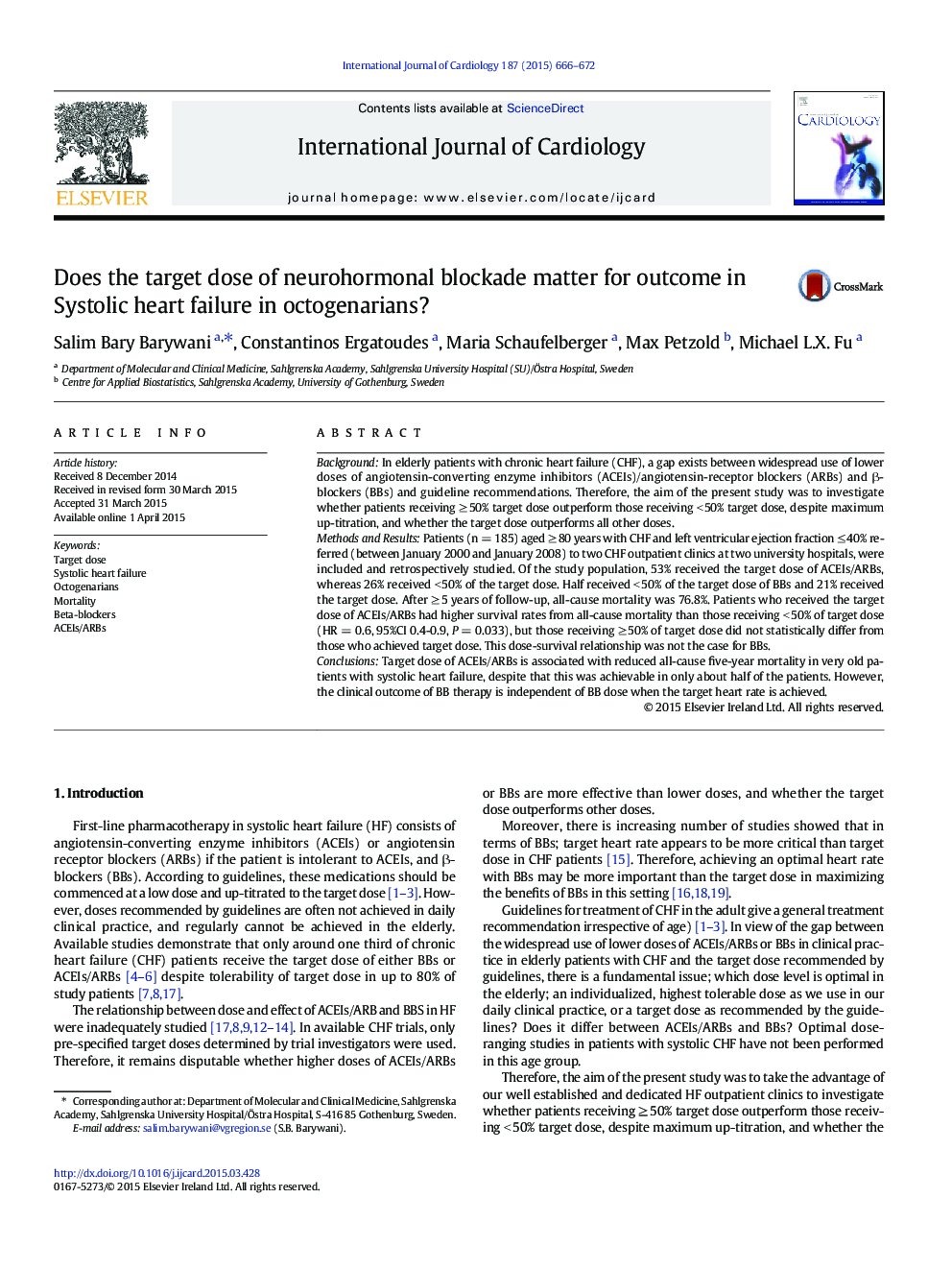| Article ID | Journal | Published Year | Pages | File Type |
|---|---|---|---|---|
| 5967969 | International Journal of Cardiology | 2015 | 7 Pages |
â¢Only 14% received target dose of ACEIs/ARBs plus BBs.â¢21% and 53% received target dose ACEIs/ARBs and BBs respectively.â¢Target dose of ACEIs/ARBs was associated with higher survival rate.â¢No differences in survival rate founded between the three dose-groups of BBs.â¢The clinical outcome of BB therapy is independent of dose when the target heart rate is achieved.
BackgroundIn elderly patients with chronic heart failure (CHF), a gap exists between widespread use of lower doses of angiotensin-converting enzyme inhibitors (ACEIs)/angiotensin-receptor blockers (ARBs) and β-blockers (BBs) and guideline recommendations. Therefore, the aim of the present study was to investigate whether patients receiving â¥Â 50% target dose outperform those receiving < 50% target dose, despite maximum up-titration, and whether the target dose outperforms all other doses.Methods and ResultsPatients (n = 185) aged â¥Â 80 years with CHF and left ventricular ejection fraction â¤Â 40% referred (between January 2000 and January 2008) to two CHF outpatient clinics at two university hospitals, were included and retrospectively studied. Of the study population, 53% received the target dose of ACEIs/ARBs, whereas 26% received < 50% of the target dose. Half received < 50% of the target dose of BBs and 21% received the target dose. After â¥Â 5 years of follow-up, all-cause mortality was 76.8%. Patients who received the target dose of ACEIs/ARBs had higher survival rates from all-cause mortality than those receiving < 50% of target dose (HR = 0.6, 95%CI 0.4-0.9, P = 0.033), but those receiving â¥Â 50% of target dose did not statistically differ from those who achieved target dose. This dose-survival relationship was not the case for BBs.ConclusionsTarget dose of ACEIs/ARBs is associated with reduced all-cause five-year mortality in very old patients with systolic heart failure, despite that this was achievable in only about half of the patients. However, the clinical outcome of BB therapy is independent of BB dose when the target heart rate is achieved.
